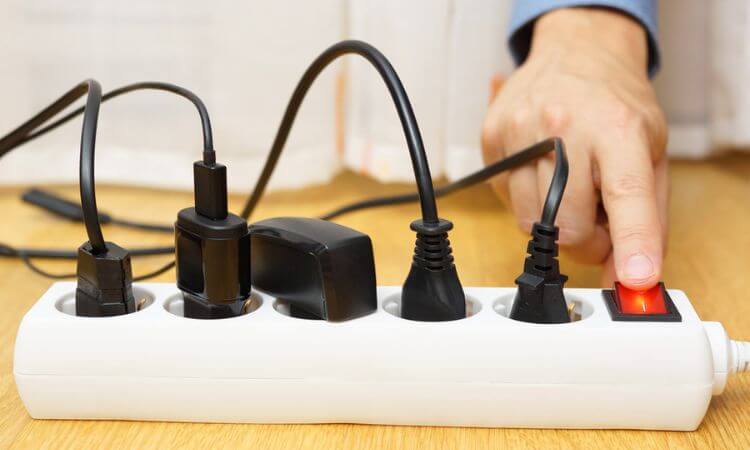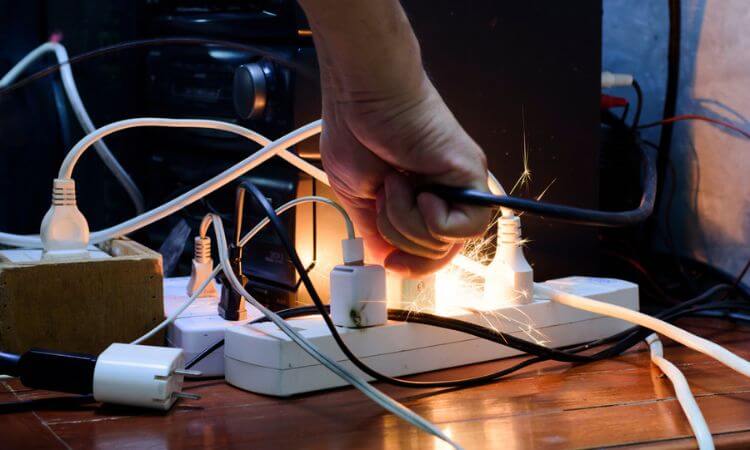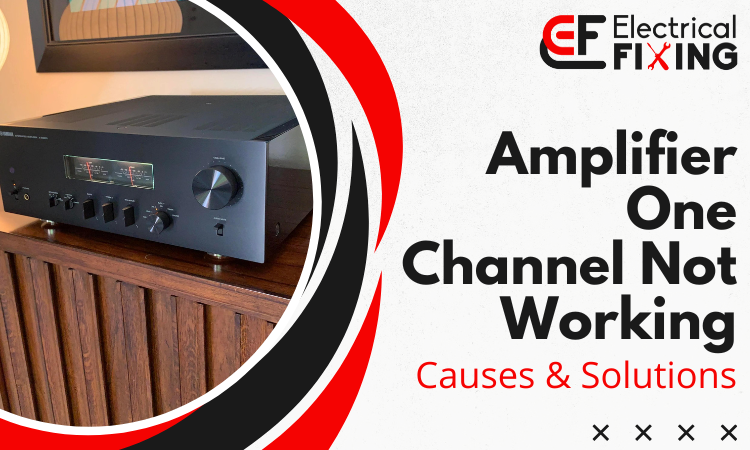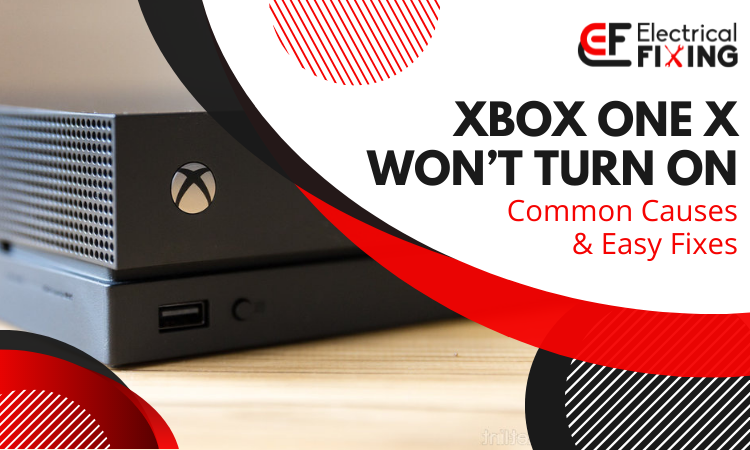Hey there! This post contains affiliate links to products. We may receive a commission for purchases made through these links. But it never influences our product selection process.
Loud noises coming from electronic parts are not always expected. However, there is an issue when the clicking sound from a surge protector gets too loud and disruptive.
So, why does the surge protector make a clicking noise?
The surge protector’s clicking sound is a sign that there are problems. Issues with the electric signal from the provider could be the cause of the sound. Some of these noises may also be caused by the surge’s heavy use. However, the connected faulty charger may possibly be the source of the noise.
Let’s investigate the causes of the surge protector noise together.
Why Does Surge Protector Making Clicking Noise?

A surge protector has a clicking noise similar to the light in the battery charger that keeps on blinking. So, if your surge protector frequently experiences surges and diverts the electricity safely away, you will hear clicking noises.
Short-circuiting electronics can give a thousand times the average supply. Also can harm or even completely destroy them.
Reason 1: Noise From Surge Protectors During An Outage
Surge protectors are designed to guard against unexpected surges, as their name suggests. By absorbing and rerouting excess current, they provide protection.
Surge protectors are made to click when they come into contact with a surge.
Therefore, a clicking sound indicates your surge is working as intended. This is to shield your appliances and power strip from the unexpected surge.
Therefore, a surge protector makes a clicking sound a good thing. However, it becomes an issue when it keeps clicking frequently.
Constant voltage spikes are indicated by persistent clicking. This happens as a result of certain plugged-in appliances’ excessive demand.
There can be an issue also with the electrical input with the high current loads to the UPS.
Solution:
Simply keeps an eye out for compatible equipment to prevent abrupt voltage spikes. A lot of power-hungry equipment shouldn’t be plugged in at once.
If you lower the input power sensitivity, your Back-UPS may operate more quietly. If your device still clicks after making the sensitivity modification, there can be an issue with the electrical input or power sags from adjacent or connected high-current loads to the UPS.
Pro Tip: It would be wise to install a good quality UPS. This will ensure your appliances not having to face abrupt power drops or surge.
Reason 2: Failure and Spark

The surge protector may make popping or sizzling noises. That is most likely a result of an explosion inside the surge protector. Either a MOV or a capacitor might be the culprit.
By using this metal oxide varistor (MOV), the circuit will be shielded from high-voltage peaks. Your power strip becomes a surge protector thanks to this addition. Therefore, popping would undoubtedly fail if the MOV explosion was the cause.
Power-hungry appliances are closely associated with sparking, whether audibly or visually. As a result, you might hear it as soon as you plug one of these appliances into the surge protector. They require abruptly high voltage, hence the reason.
Long-term use of surge protectors may also result in component damage and loose wires. And their constant, loud roar will increase.
Solution:
If a wall outlet is burned or discolored due to a spark, it needs to be replaced. Check the surge protector case for any discolored or melted areas near the plug prongs.
You can use a multimeter to check the power flow in your breakers. You can also call for an expert for a complete inspection and assessment.
Reason 3: Faulty Wiring Portion
If the breaker appears to be working, there is possibly a problem with the wiring connected to the outlet. Unstable power levels caused by frayed wires or faulty connections may cause your surge protector to activate.
Faulty wires itself have a lot of reasons to start the clicking noise in a surge protector. Faulty wires can create power surges. Which the surge protectors will work to absorb. A surge protector making loud noise is a problem at times like this.
Solution:
You might need to consult an electrician for assistance. Since, unfortunately, even the most ardent DIY may find detecting broken wiring to be a challenging undertaking.
However, first, check whether the situation changes. Insert the surge protector into separate circuits before dialing a professional. This is something you should do when your AC contactor does not get certain volts.
Additionally, unplug each device one at a time if you have several plugged to the same surge protector. It’ll determine if one particular item is the culprit.
Reason 4: Lightning Strikes
Protecting devices against lightning strikes, which may send millions of volts of current through your electrical connections, is the most obvious use for a surge protector.
Lightning strikes can happen kilometers away, causing electrical issues without having to hit your home directly.
Solution:
If you have to deal with lightning strikes then you will need to change the devices often. More or less, whenever a big lightning strike happens, the surge protectors cannot withstand it more than once.
A cautious work would be to unplug electronic equipment amid lightning storms. This will prevent potential issues as a surge protector might not offer maximum protection from such a lightning strike.
Reason 5: Breaker Box Tripping
When too much electricity is present, the circuit breaker within the electrical box of your home serves as a designed surge suppressor by cutting off the circuit to which it is attached.
A breaker may fail to trip properly, allowing more electricity to flow through to your outlets, due to loose wiring including damaged or malfunctioning fuses. Your surge protector may click as a result of this.
Solution:
If a breaker box trips or fails to trip, then the surge protector will work to protect your appliances from short-circuiting. If your breaker box is malfunctioning, then you should replace it with a new one.
Investing in a good quality breaker box is really needed. These are good quality products which will give you good performance. You can use a multimeter to check the power flow in your breakers or call an expert for a complete inspection and assessment.
That is all there is to talk about this topic.
Frequently Asked Questions (FAQs):
What causes the surge protector prong to melt?
Loose wiring is the most frequent reason for the surge protector’s prong to melt. It might also occur as a result of that particular prong’s oxidation. Heat would be produced by the power loss across the connection. Prong or plug melts eventually.
Can a surge protector explode?
Most likely, the answer is yes. Exploding surge protectors also mean exploding internal components. For instance, it might be a MOV component, capacitor, fuse, or breaker. The socket opening’s bluish hue could be visible. This happens when power-hungry appliances cause surge protectors to experience significant voltage spikes.
How do I know if my surge protector needs replacing?
Simply look at your surge protector and see if you can detect a green or red blinking light on the side of the device. Please be aware that this isn’t a failsafe method. The absence of a flashing red light does not necessarily indicate that something is okay with your equipment. However, if it’s flashing, you must replace it immediately.
Can a surge protector start a fire?
Surge protectors do occasionally catch fire, it’s true. The primary cause of fire danger is improper surge protector usage. such as creating a daisy chain by inserting one surge protector to the other. This is a dangerous activity that is strictly discouraged.
Conclusion
By now, it should be obvious why the surge protector is making clicking noise.
It is not that much of a big issue. But whenever this might occur, it is for the best that you take the necessary steps.
For any more questions, you may have, best to consult with an electrician.
That’s all, be careful.
Hey, I’m Steven Jones, the founder, and writer of this site. I have worked in Electrical for the past 5 years. I also know how to save energy and how to troubleshoot our electrical devices. I hope you enjoy my blog.



